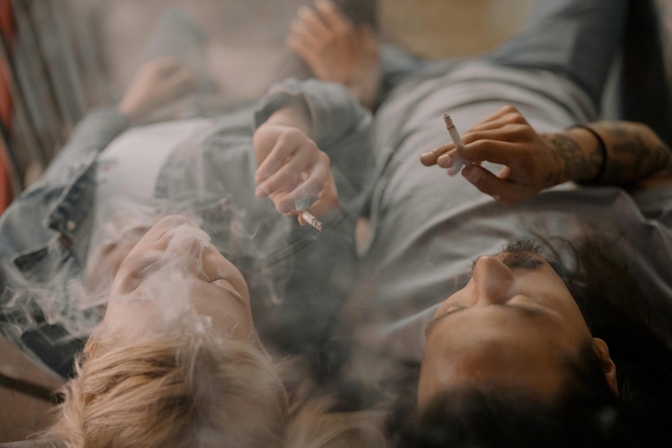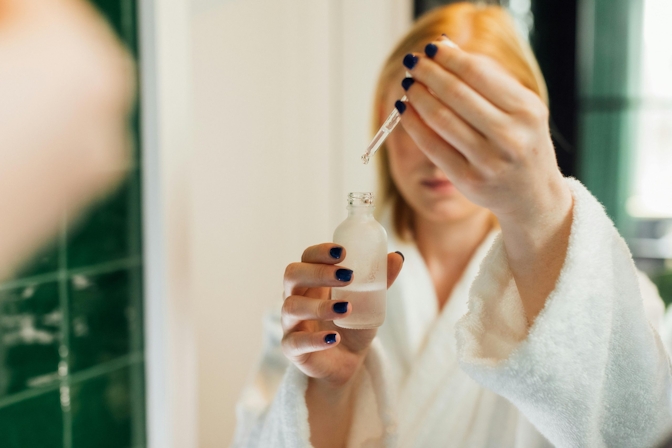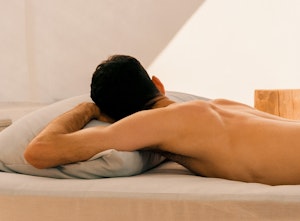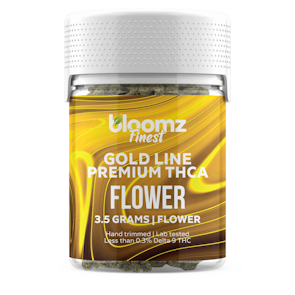
Photo by cottonbro studio / Pexels
Using Cannabis For Insomnia: The Benefits And Risks
Navigate the realm of insomnia relief with cannabis, exploring its potential benefits and risks as a natural remedy.
Insomnia refers to consistent sleep initiation or maintenance difficulties impacting daytime function. Though estimates vary, approximately 10-30% of adults deal with chronic insomnia symptoms spanning months or years despite trying behavioral interventions or pharmaceutical sleep aids carrying habit-forming dependencies.
Out of desperation, many insomniacs self-medicate with readily accessible cannabis to help relax the mind and body to drift into slumber naturally. And early research shows promise regarding effectiveness and safety.
However, risks remain if misused recreationally. When utilized judiciously under medical guidance, cannabis offers a potent botanical alternative for chronic insomnia sufferers seeking restful nights.
Everything About Using Weed For Insomnia

Photo by Cottonbro Studio
Both CBD and THC interact with brain receptors modulating sleep/wake cycles, but THC compounds directly bind to receptors affecting sedation and time spent in crucial REM phases. The most popular products include:
THC Edibles
Oral ingestion sustains measured doses for hours compared to inhaled variants
Indica Flower
Sedating cultivars like Granddaddy Purple induce relaxation ideal for easing pre-bed anxiety
Tinctures
Precise dropper-measured fast-acting combinations easily calibrate to patient needs
Transdermal Patches
Time released contact absorption minimizes intoxication risks
Benefits Of Cannabis For Insomnia Sufferers

Photo by KoolShooters / Pexels
While individual experiences and responses vary, much promising data supports cannabis for sleep, including:
- Reduced sleep onset latency
- Increased total sleep duration
- Enhances REM sleep
- Reduces daytime sleepiness
Both users reported perceptions and EEG-monitored brain activity, which confirmed that they slept less time before falling asleep.
Total time asleep modestly increases thanks to faster sleep initiation and infrequent mid-sleep awakenings afterward.
Vital REM sleep, crucial for memory consolidation and learning, gets both extended and intensified by cannabinoid modulation of brain wave states.
Despite worries to the contrary, the next day grogginess or lingering inert mental fog proves rare among insomnia patients using cannabis properly at night.
Risks & Considerations Of Using Cannabis For Insomnia
However, certain risks warrant consideration before proceeding:
- Potential next-day residual effects
- Suboptimal administration methods
- Legal access obstacles
Lingering next AM slowness or impaired coordination poses occupational hazards for those operating machinery/vehicles so gauge function very cautiously before attempting until familiar with effects. Also, consistent reliance on any sleep aid hampers natural sleep drive regulation in the long term.
Smoking and vaping bypass gastrointestinal filters and deliver unpredictably concentrated doses, risking next-day hangover-like symptoms from excessive or ineffective dosing. Start with measured orally consumed options instead of with doctor guidance on ideal THC: CBD balances according to severity diagnosed.
Federal illegality makes obtaining predictably consistent cannabis problematic. And state medical programs take time to navigate. Ensure product quality and safety via thoroughly vetted supplier verification.
The Best Weed For Insomnia
bloomz High THCa Hemp Flower - Gold line
This potent indoor hemp flower is known for its amazing physical and mental effects. The High THCa Hemp Flower – Gold Line by bloomz comes in a ton of different strains, all of the best nugs, all in one boutique batch. If you’re interested in expanding your horizons, this is your highway ticket to cloud 9.
Cookies Georgia Pie
Kush Mints and Gellati have combined to give birth to a new sweet, nutty, and berry-tasting Georgie Pie. Cookies Georgia Pie delivers a smooth, full-body relaxation topped off with a euphoric mood perfect for your evening downtime. You can pick up your grams at Indigo Dispensary.
Indoor White Wizard Hemp Flower
If premium and potent is what you’re into, 25 hour farms’ Indoor White Wizard Hemp Flower is our recommendation. With a fresh aroma and frosty white trichomes, this Sativa has been lab-tested for potency, assuring the most rejuvenating experience for consumers. Take a crack at this indoor CBG hemp flower strain
Is Weed For Insomnia Legal?
Despite public support for medical marijuana programs, non-psychoactive CBD products remain the only legal over-the-counter options under federal laws.
As of 2023, 37 U.S. states allow regulated THC access through designated medical dispensaries with doctor approval addressing diagnosed conditions – including chronic insomnia. However, qualifiers and product selections vary between states. Only 19 states permit adult recreational use outside the medical context.
Users should consult state laws and guidelines closely before proceeding with THC products where permitted locally under specified regulations. Change continues progressing toward more permissive legislation as compelling supportive data mounts regarding applicable health benefits over risks. However, more research is still required to solidify evidence-based protocols for physicians.
How To Use Weed For Insomnia

Photo by Karolina Grabowska / Pexels
If considering cannabis for sleep troubles after exhausting traditional first-line treatments, ensure responsible harm-reduction practices:
- Start low doses
- Take early evening
- Avoid oral routes
- Limit frequency
- Log experiences
Minimize unpleasantness risk using minimum viable doses, then incrementally increase until therapeutic effects emerge without impairment or next-day hangovers.
Only consume products strictly limited to early evenings, never later into the night. This prevents sleep phase disruptions and allows functionality to be assessed in the morning without being rushed before obligations.
Ingested edibles and oils sustain absorption unpredictably. Smoking/vaping faster-acting inhalation enables better custom tailoring to needs nightly despite health tradeoffs over longevity.
Reliance on any sleep aids risks natural sleep drive dysfunction long term. Strategize approaches limiting usage to 2-3 nights weekly maximum, gradually decreasing to zero as sleep hygiene fundamentals solidify bedroom conditions improving baseline sleep unaided.
Meticulously track parameters like product type, dose timing/amounts, sleep onset ease, wakefulness, next AM lethargy, mood, and productivity levels to educate adjustments optimizing phases until stability is reached.
Cannabis For Insomnia Management
With thorough due diligence regarding risks, cannabis offers insomnia sufferers long awaited alternatives to habit-forming sleep medications following personalized responsible regimens, ideally as temporary bridges while ingraining sustainable sleep hygiene practices retraining sleep drive homeostasis absent substances.
Patience and dedication to the process enables reclaiming restorative sleep naturally over time for most willing to judiciously walk the path.
Herb Recommended Products:
READ MORE












